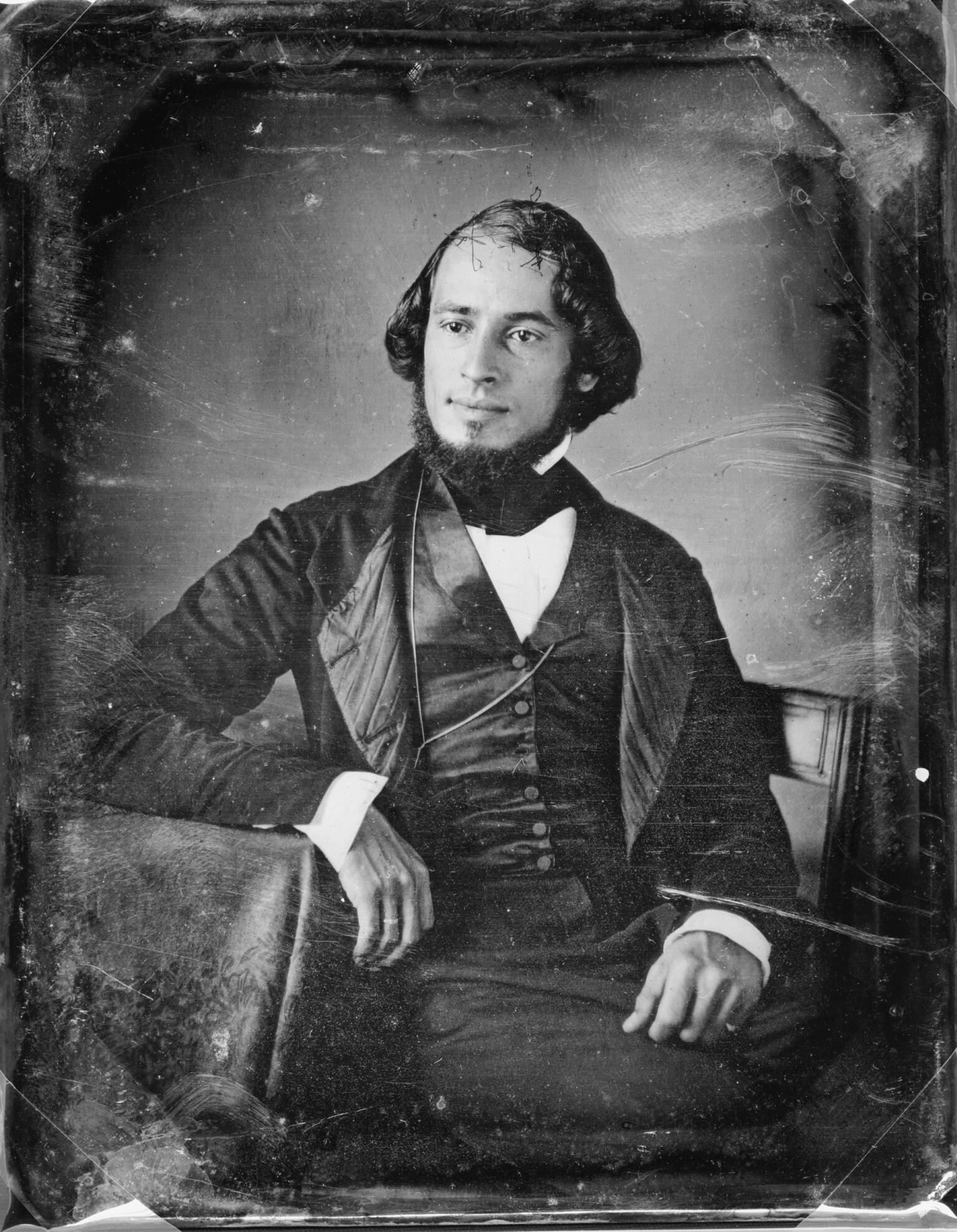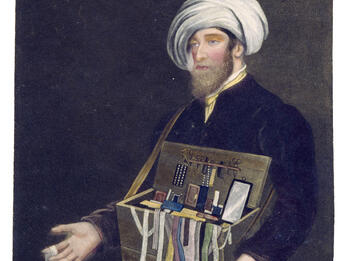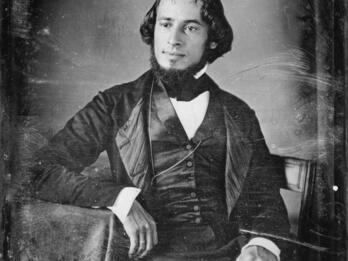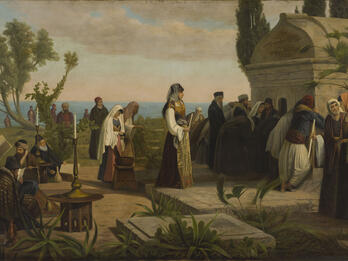Travel Journal
The River Jordan runs through the valley and empties into Great Salt Lake. The city is thirty miles from the Lake, and the valley is entirely surrounded with high mountains topped with snow, winter and summer.
The governor’s residence, a large wooden building of sufficient capacity to contain his extensive family—nineteen wives and thirty-three citizens, was nearly finished. I made a daguerreotype view of it, and also a drawing.
The court house is a large square building, on the east side, opposite the Temple square.
The post office occupies the corner on the south side.
The Tabernacle, an unpretending one story building, occupies a portion of the Temple square.
The Temple is in course of building—the foundation is laid—and I was allowed to see the plan projected by a Mr. Angell, who by inspiration has succeeded in producing an exact model of the one used by the Melchizedek Priesthood, in older times.
The theatre, a well built modern building, is opposite to the governor’s house on the north, and is the property of the church as are all the public buildings. I may say all the real estate in the valley is the property of the church, for proprietors have only an interest in property so long as they are members of the Mormon Church, and reside in the valley. The moment they leave or apostatize, they are obliged to abandon their property, and are precluded from selling it, or if they do give the bill of sale it is not valid—it is not tenable by the purchaser. This arrangement was proposed by the governor and council, at the conference which took place during my residence among them in 1854, and thousands of property holders subsequently deeded their houses and lands to the church, in perpetuity.
Under the operation of this law, nobody but Mormons can hold property in Great Salt Lake City. There are numbers of citizens who are not Mormons, who rent properties; but there is no property for sale—a most politic course on the part of the Mormons—for in case of a railroad being established between the two oceans, Great Salt Lake City must be the half way stopping place, and the city will be kept purified from taverns and grog shops at every corner of the street. Another city will have to be built some distance from them, for they have determined to keep themselves distinct from the vices of civilization. During a residence of ten weeks in Great Salt Lake City, and my observations in all their various settlements, amongst a homogeneous population of over seventy-five thousand inhabitants, it is worthy of record, that I never heard any obscene or improper language; never saw a man drunk; never had my attention called to the exhibition of vice of any sort. There are no gambling houses, grog shops, or buildings of ill fame, in all their settlements. They preach morality in their churches and from their stands, and what is as strange as it is true, the people practise it, and religiously believe their salvation depends on fulfilling the behests of the religion they have adopted.
The masses are sincere in their belief, if they are incredulous, and have been deceived by their leaders, the sin, if any, rests on them. I firmly believe the people to be honest, and imbued with true religious feelings,—and when we take into consideration their general character previously, we cannot but believe in their sincerity. Nine-tenths of this vast population are the peasantry of Scotland, England and Wales, originally brought up with religious feelings at Protestant parish churches. I observed no Catholic proselytes. They have been induced to emigrate, by the offers of the Mormon missionaries to take them free of expense, to their land flowing with milk and honey, where, they are told, the Protestant Christian religion is inculcated in all its purity, and where a farm and house are bestowed gratuitously upon each family. Seduced by this independence from the state of poverty which surrounds them at home, they take advantage of the opportunity and are baptized into the faith of the “latter day saints,” and it is only after their arrival in the Valley that the spiritual wife system is even mentioned to them. Thousands of families are now in Utah who are as much horrified at the name of polygamy, as the most carefully educated in the enlightened circles of Europe and America. More than two-thirds of this population (at least, this is the ratio of my experience) cannot read or write, and they place implicit faith in their leaders, who, in a pecuniary point of view, have fulfilled their promise; each and all of them are comfortably provided with land and tenements. The first year they, of course, suffer privations, until they build their houses and reap their crops, yet all their necessities in the meantime are provided for by the church, and in a social point of view, they are much happier than they could ever hope to have been at their native homes. From being tenants at will of an imperious and exacting landlord, they suddenly become land holders, in their own right—free men, living on free soil, under a free and enlightened government.
Their religious teachers of Mormonism preach to them, as they call it, “Christianity in its purity.” With their perfect right to imbibe new religious ideas, I have no wish to interfere, nor has any one. All religions are tolerated, or ought to be, in the United States, and I offer these remarks as an apology for the masses of honest men, many of whom have personally told me, that they were ignorant of the practice of polygamy before their arrival in the Valley, and surrounded as they are, by hostile tribes of Indians, and almost unsurmountable mountains of snow, they are precluded from returning home, but live among themselves, practicing as well they know how, the strict principles of virtue and morality.
Credits
Published in: The Posen Library of Jewish Culture and Civilization, vol. 6.







